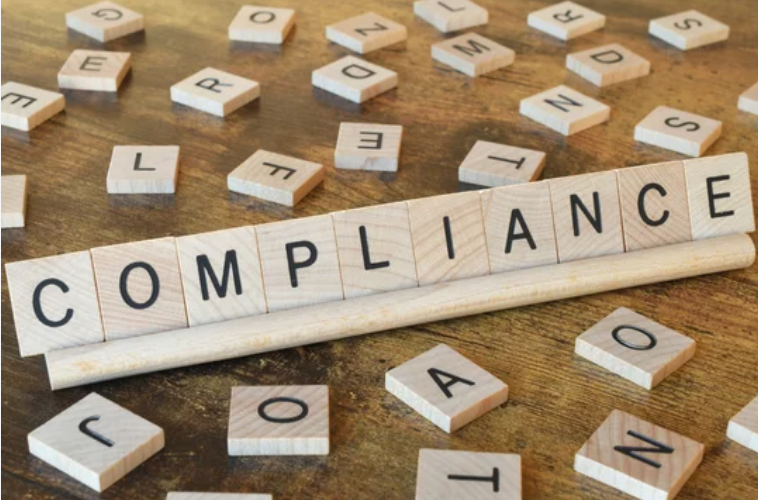Corporate Tax Compliance: Linking ACRA Filings with IRAS Requirements

Strong 8k brings an ultra-HD IPTV experience to your living room and your pocket.
In Singapore, companies must follow regulations set by two main bodies: ACRA (Accounting and Corporate Regulatory Authority) and IRAS (Inland Revenue Authority of Singapore). ACRA focuses on business registration and corporate governance. IRAS oversees taxes. They operate separately, but their systems are connected — and the information you file with one often affects how you're treated by the other.
Understanding how your ACRA filings link to your IRAS requirements isn’t just helpful. It’s essential.
Two Authorities, One Outcome
Let’s break this down.
ACRA is where every Singapore-incorporated company must file:
- Annual Returns
- Company updates (like changes to directors, shareholders, or share capital)
- Financial statements, often in XBRL format
IRAS handles:
- Corporate income tax (Form C or C-S)
- Estimated Chargeable Income (ECI)
- Goods and Services Tax (GST), if applicable
On paper, these seem like separate responsibilities. But here’s where things get tricky: IRAS uses data from ACRA to assess your tax filings. If your submissions don’t align — say, if your financials in the annual return differ from what’s in your tax return — that raises questions. Questions that usually lead to more paperwork, audits, or penalties.
So, the goal isn't just to meet deadlines. It’s to ensure everything matches, across both platforms.
How the Systems Talk to Each Other
Let’s say you’ve just wrapped up your financial year. What happens next?
First, your company prepares financial statements. These go to ACRA when you file your Annual Return. The same figures — revenue, profit, expenses — also form the basis for your tax return with IRAS.
Here’s how the sequence works:
- Financial year ends
- Prepare financial statements
- Submit ECI to IRAS (within 3 months)
- File Annual Return with ACRA (within 7 months)
- Submit Form C or C-S to IRAS (by 30 Nov if FY ends on 31 Dec)
Every figure you report flows from the same source — your financials. If you file inconsistent information, it can trigger an investigation or lead to late filing penalties.
Also, since IRAS may access your ACRA filings directly, errors or delays at ACRA could impact how IRAS processes your tax returns. It’s all connected.
Common Pitfalls (and Why They Happen)
Many businesses — especially small ones — run into trouble not because they’re trying to dodge taxes, but because compliance is complex. Some of the most common mistakes include:
- Missing the ECI deadline: You must file Estimated Chargeable Income within three months of your financial year-end. Miss this, and you lose tax instalment options or risk fines.
- Late or incorrect Annual Returns: Companies often scramble to meet the 7-month deadline. If the return is late or inaccurate, ACRA may issue fines or warnings. These filings are also used by IRAS, so double errors are possible.
- Misaligned financials: If the financial statements filed with ACRA don’t match those used in tax computations, it creates confusion. IRAS might flag the mismatch and start an audit.
- Assuming exemptions equal no obligations: Small or dormant companies may think they can skip filing. In reality, they may be exempt from audits, but not from preparing and filing proper documents.
All of these issues have something in common: they stem from trying to manage compliance reactively, rather than proactively.
How Company Secretarial Services Help
This is where company secretarial services come in. Despite the name, they don’t just handle admin work. A corporate secretary ensures that all your ACRA filings are complete, accurate, and timely. They also help make sure that what’s filed with ACRA makes sense to IRAS.
That means:
- Preparing accurate financials
- Tracking submission deadlines
- Filing resolutions and board approvals
- Coordinating with accountants or tax agents
- Maintaining registers and statutory records
It’s not just box-ticking. It’s about building a smooth system, so your filings don’t trip over each other.
A Practical Timeline (If FY Ends on 31 Dec)
To bring it all together, here’s how your corporate year might look:
- January – March: Prepare financials. File ECI with IRAS by 31 March.
- April – June: Finalize unaudited or audited financial statements.
- July: File Annual Return with ACRA by 31 July. Submit updated shareholder/director information if needed.
- August – November: Prepare tax computations. Submit Form C or C-S to IRAS by 30 November.
Each stage connects to the next. If you miss the first, you risk delaying the second, and so on.
Final Thoughts
Compliance in Singapore isn’t optional. But it also doesn’t have to be painful.
The key is understanding that your ACRA filings and IRAS obligations are linked — and treating them as one connected process, not two separate chores. When handled properly, this alignment makes annual filings smoother, reduces risks, and saves time.
If you’re not confident in managing all of this yourself, working with professionals who offer company secretarial services makes a big difference. Corporate secretarial services by Entrust go beyond form-filing. They help build the bridge between ACRA and IRAS — keeping your company compliant, consistent, and audit-ready.
You run the business. Let someone else run the filings.
Note: IndiBlogHub features both user-submitted and editorial content. We do not verify third-party contributions. Read our Disclaimer and Privacy Policyfor details.







